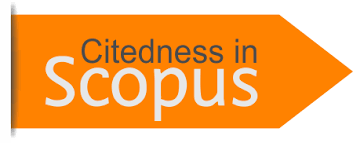Metode Fuzzy Delphi: Analisis Keperluan Terhadap Pembangunan Model Pendakwah Mualaf Profesional [Fuzzy Delphi Method: Needs Analysis for the Development of a Professional Convert Preacher Model]
Keywords:
Metod Fuzzy Delphi, Model Pendakwah, Mualaf ProfesionalAbstract
Kajian ini menggunakan Metod Fuzzy Delphi (FDM) untuk menganalisis keperluan bagi pembangunan model pendakwah mualaf profesional. Mualaf merupakan individu yang baru memeluk Islam dan berpotensi menjadi agen dakwah berkesan, khususnya dalam kalangan komuniti bukan Muslim. Walau bagaimanapun, kekurangan bimbingan sistematik dan sokongan institusi menghalang potensi mereka untuk berperanan sebagai pendakwah profesional. Kajian ini dilaksanakan melalui tiga fasa utama: analisis keperluan, reka bentuk dan pembangunan model, serta penilaian kebolehgunaan. Fasa pertama melibatkan temubual separa struktur dengan pakar dan mualaf profesional bagi mengenal pasti cabaran dan keperluan pembangunan. Hasil dapatan dianalisis menggunakan FDM bagi menentukan elemen dan komponen utama model yang dicadangkan. Fasa terakhir menilai kebolehgunaan model menggunakan Teknik Kumpulan Nominol Ubah Suai (Modified NGT) bersama pegawai dakwah. Hasil kajian menunjukkan keperluan terhadap model yang menekankan pembangunan ilmu agama, kemahiran komunikasi, kepimpinan dan pengalaman praktikal. Kajian ini mencadangkan model pembangunan yang holistik bagi memperkasakan mualaf sebagai pendakwah profesional dan agen perubahan sosial yang efektif.
This study utilizes the Fuzzy Delphi Method (FDM) to analyze the needs for the development of a professional convert preacher model. Converts (mualaf) are individuals who have recently embraced Islam and have the potential to become effective agents of da'wah, especially within non-Muslim communities. However, the lack of systematic guidance and institutional support hampers their potential to serve as professional preachers. The study is conducted through three main phases: needs analysis, model design and development and usability evaluation. The first phase involves semi-structured interviews with experts and professional converts to identify the challenges and needs for development. The findings are analyzed using FDM to determine the key elements and components of the proposed model. The final phase evaluates the usability of the model using the Modified Nominal Group Technique (Modified NGT) with da'wah officers. The results highlight the need for a model that emphasizes the development of religious knowledge, communication skills, leadership, and practical experience. This study proposes a holistic development model to empower converts as professional preachers and effective agents of social change.















